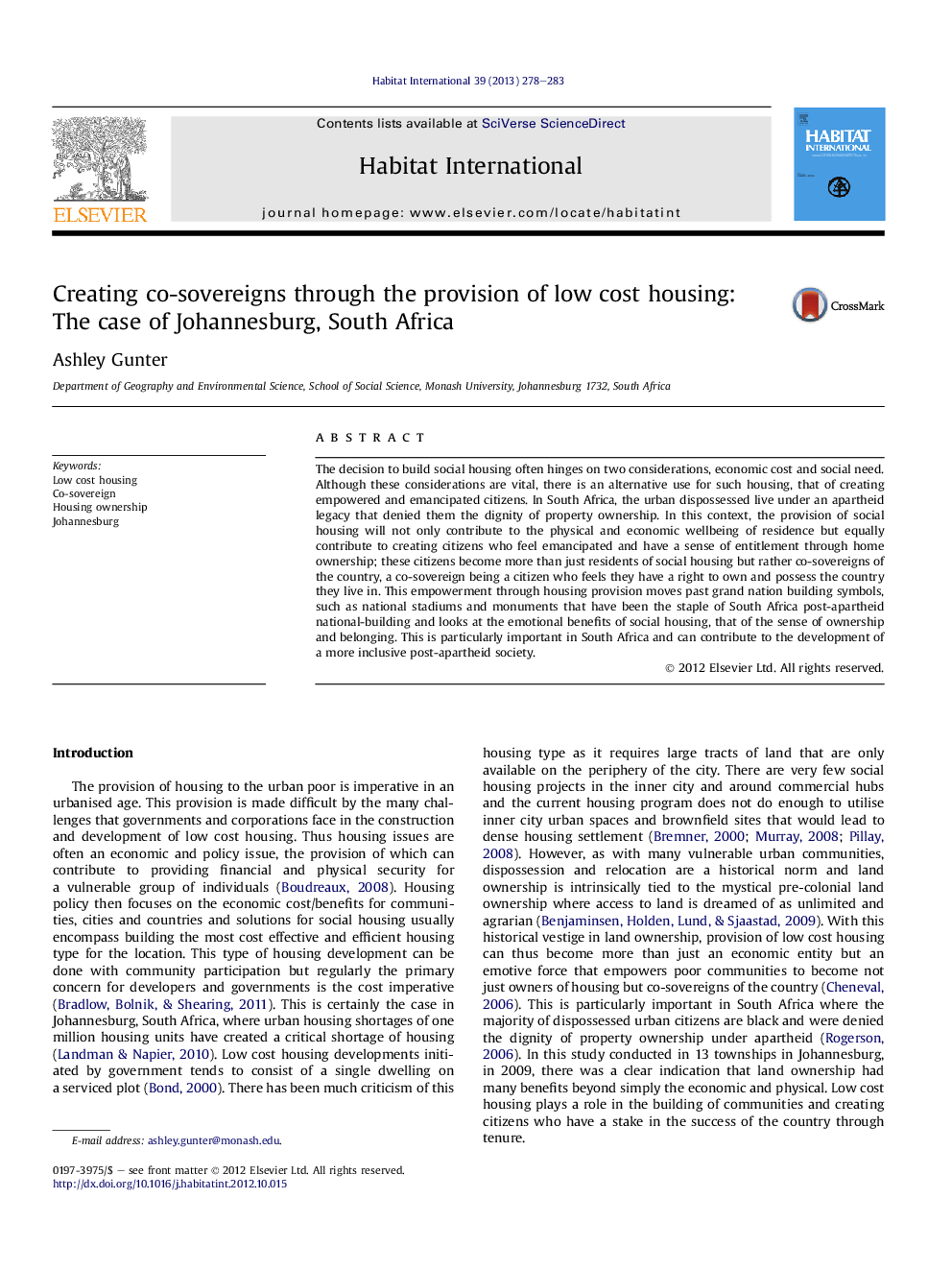| Article ID | Journal | Published Year | Pages | File Type |
|---|---|---|---|---|
| 1048248 | Habitat International | 2013 | 6 Pages |
The decision to build social housing often hinges on two considerations, economic cost and social need. Although these considerations are vital, there is an alternative use for such housing, that of creating empowered and emancipated citizens. In South Africa, the urban dispossessed live under an apartheid legacy that denied them the dignity of property ownership. In this context, the provision of social housing will not only contribute to the physical and economic wellbeing of residence but equally contribute to creating citizens who feel emancipated and have a sense of entitlement through home ownership; these citizens become more than just residents of social housing but rather co-sovereigns of the country, a co-sovereign being a citizen who feels they have a right to own and possess the country they live in. This empowerment through housing provision moves past grand nation building symbols, such as national stadiums and monuments that have been the staple of South Africa post-apartheid national-building and looks at the emotional benefits of social housing, that of the sense of ownership and belonging. This is particularly important in South Africa and can contribute to the development of a more inclusive post-apartheid society.
► Property ownership is analysed as more than an ownership of an asset. ► Home ownership is empowerment through housing provision. ► Home owners in Townships have a greater sense of belonging to their community.
